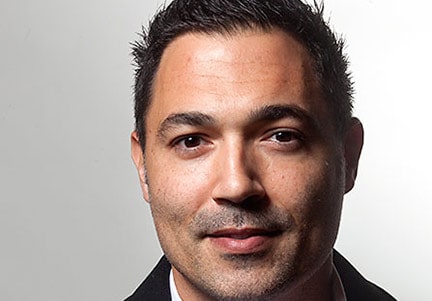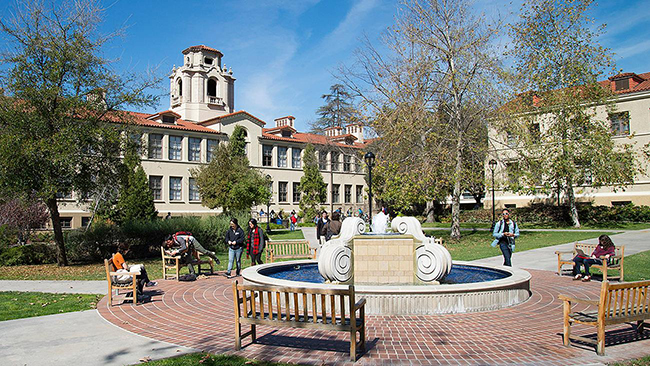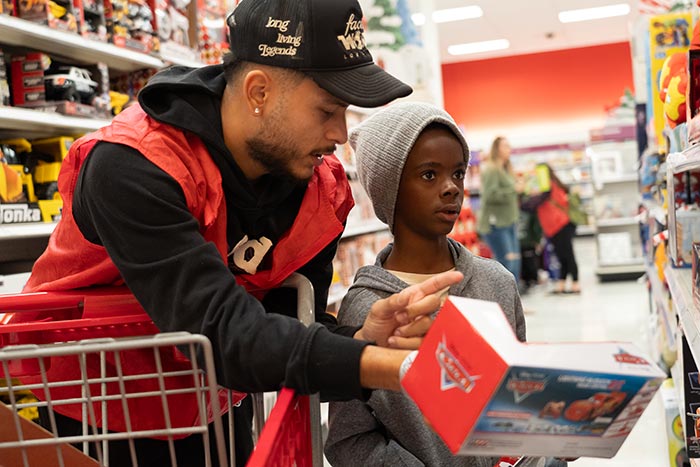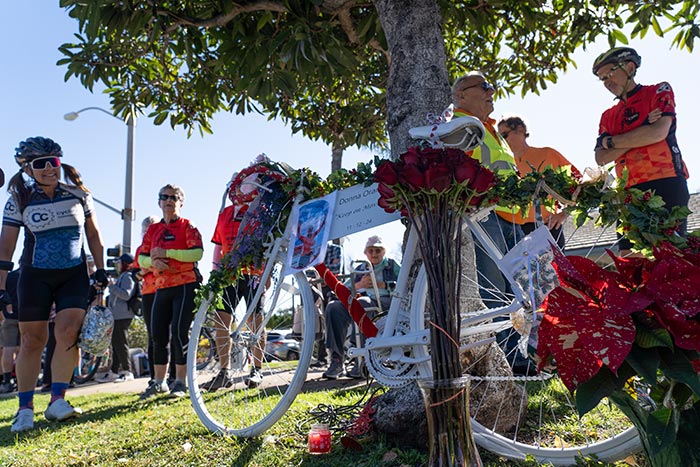Eight questions for eight candidates: Abraham Prattella

Abraham Prattella is one of eight people running for Claremont City Council. A realtor and former pastor, Mr. Prattella has called Claremont home for more than 25 years. Now, he’s running for city council as a way to give back to the community.
Why are you running for city council?
In my heart, I really just want to give back at a different level. For the past 15 years, it was never really about me. My heart has been transformed and I want to pour into others. I started a company here in Claremont in 2008. We made it from a small to a nationwide company and sold it in 2011, with the majority of the funds given back to the people of the city. I kind of want to do it on a different level. That’s where I’m at, really, just to give back and use all my skills I’ve been developing to move forward.
A big story right now is the water trial. Recently a judge ruled against Claremont’s quest to claim eminent domain over the water system, and there are murmurs of an appeal. Do you think the city should go forward and appeal?
It looks like Golden State Water has a monopoly, so there’s really no option but to appeal it. Either way it’s going to help us to appeal. Meanwhile, we have to fight the PUC (Public Utilities Commission) because they’re allowing the monopoly to keep the rates high. We all have to join hands with Region 3 to fight the PUC as option B. It may not look good, but we may have no other option.
In 2015, voters rejected Measure PS, a $50 million police station bond. Afterward, an ad hoc committee was convened to create a new plan for a possible police station, and it will appear on the June 2017 ballot. Do you agree with the ad hoc committee’s findings? Do you think it will be good for Claremont?
I think it was improperly displayed as far as real options. If we really knew what the cost was, then we might have passed this measure to begin with. When we have more safety, the value of Claremont goes up. The values of homes go up. The values of schools go up. The long-term return on investment is going to increase everything all around it. I would definitely redevelop the outdated system we have. How can we be a city that flourishes in technology and safety if we do not have the technology that we need, or the enforcement that we need or the equipment? I definitely agree with the committee’s decision to invest, to rebuild the station and expand technology, 100 percent.
Nobody wants to raise taxes. We have lots of seniors here and their checks are penny-by-penny. So, to raise property taxes would jeopardize them. To raise the utility tax would really hurt them. But we can definitely cut costs somewhere. I have some solid plans that would increase revenue in the city without affecting the current consumer or the current resident here in Claremont. But we need to redevelop our police station. We have to prepare for future issues, and right now we’re not prepared for it.
People have expressed that Claremont is becoming too commercialized, too corporate, and that it’s losing its small-town feel. Do you agree with that?
As far as the commercialization of the businesses—old Claremont, old downtown Claremont—I love it as a culture. New Claremont is modernized, but I don’t think it’s too commercialized. I do feel there’s a spiritual vibe of the culture kind of diminishing. I believe it’s because the city is trying to bring in revenue, so they’re bringing in big businesses.
We want to redevelop. As a business owner here on Foothill Boulevard, when you look at the entry points on Arrow and Foothill coming in to Claremont, it’s like you’re still in Pomona or Upland for the first few minutes until you get to the heart of it. The value of business has declined because of the aesthetics and the feel of the entry points.
If we’re able to redevelop those entry points, you’re going to have more businesses that want to be there, which will increase the rents and increase sales. They feel like they’re in Claremont still—which is all going downtown, where we’re limited as far as space. I would definitely redevelop those areas, which would increase business sales and taxes for the city and create income there.
A lot of people have complained about the crowds at the Wilderness Park. What can you do to manage that?
People might not pass [entry fees for non-residents]. But people want to move here because you get all these free leisurely activities. They may not like to pay a fee outside of the city, but we’re here for our city. We’re here to take care of our people first. If it’s going to help reduce the noise and pollution there or reduce crowds, that’s fine. It’s not going to hurt us as Claremont. There are no businesses up there, so you’re not hurting business. If anything, you’re going to tax those who are not currently residents or business owners here in Claremont. I’m all for that, 100 percent.
Is the relationship between town and gown fractured? If so, what can you do to improve it?
I do agree with that, 100 percent. Three of the highest cost universities in the nation are in Claremont. Harvard and Yale are paying way less. Why? Because there’s good reciprocation between the universities and the cities. There’s good funding. The universities are the heart of Claremont. We need to be their voice for them. We bring in students. We bring in business. We bring in ideas and fresh energy and we need to get them involved.
And I believe there’s a disconnect because the bureaucracy of how government works here in Claremont. We should have a different kind of channel for them. We should have a campaign leader for them who would speak on behalf of the universities. We kind of do, but we don’t. There’s no additional privilege for them. They’re the revenue makers for us. There’s so much that they do for Claremont and they are not given enough credit for that. So we need to definitely build a channel for them.
Do you think the city is making an appropriate effort toward sustainability and, if not, what more do you think they can do?
When I think of sustainability, I think of preserving Claremont. It’s not really my motto, but it’s called the 4-G solution—four generations to come and beyond. Right now I have my parents, myself and my kids—that’s three generations. Pretty soon I’m going to have four generations, the generation coming on, so we have to maintain the city for them. We don’t want to say, “Back in my day it was better.” We want to say, “It’s better now than before.” That’s the ultimate goal.
We really need to develop as far as clean energy solutions. We need to worry about water-tolerant ideas. With the natural habitat, talking about the bee colonies, for example. In America, 50 percent of bees have to be colonized in California. We’re the city of trees, this is what we’re all about. So why aren’t we leading this bee colony issue?
But on the financial level, we need to make sure that we’re budgeting properly. In the next two or three years, we’re showing a big decline in revenue. We need to prepare for that. We can’t continue the same thing and expect change.
We have to really bring in top leaders, invest in bringing in teams to come in and help us properly. Right now in my corporation, I have four of the top financial people I have ever met and known. They’re always giving guidance and protecting my investments in all that I do. I look to them. I need to bring in the top people and figure it out. How are we going to develop this and build this? I don’t think Claremont is doing that.
We’re a small town, so if you properly plan, it should take more time to plan than to execute. We’re not properly planning, and the problem I see is there’s a disconnect between the city and the people. Only a few people are a part of it. Not everyone’s fully involved and not everything is being fully disclosed. We need to be transparent and let the people really decide.
If you had a magic wand, what is the one thing you would change about Claremont?
I love Claremont. If I had a magic wand, I would want to fully fund all that we want to do, ultimately. That’s really what it comes down to: Everyone being able to afford what they are affording and have what they have here. I love the culture and the heritage. Claremont is amazing. I can’t talk bad about it.
I pastored a church for many years, and I have all this experience. If I can really give value, I’d give people purpose and quality of life instantly. That’s what it comes down to—quality of life and purpose.
—Matthew Bramlett
news@claremont-courier.com
[Editor’s note: Leading up to the March 7 election, the COURIER will sit down with each candidate to discuss the issues. Also, we will publish weekly updates on candidates’ gatherings. —KD]











0 Comments